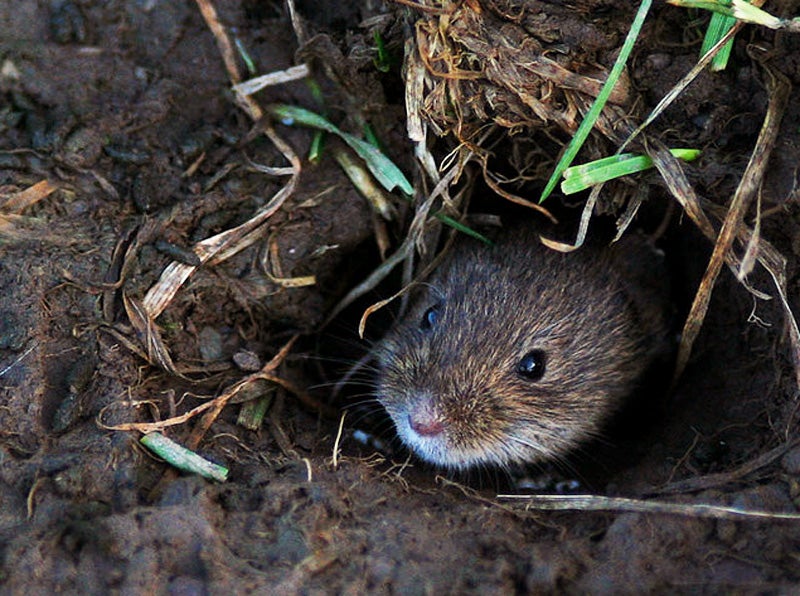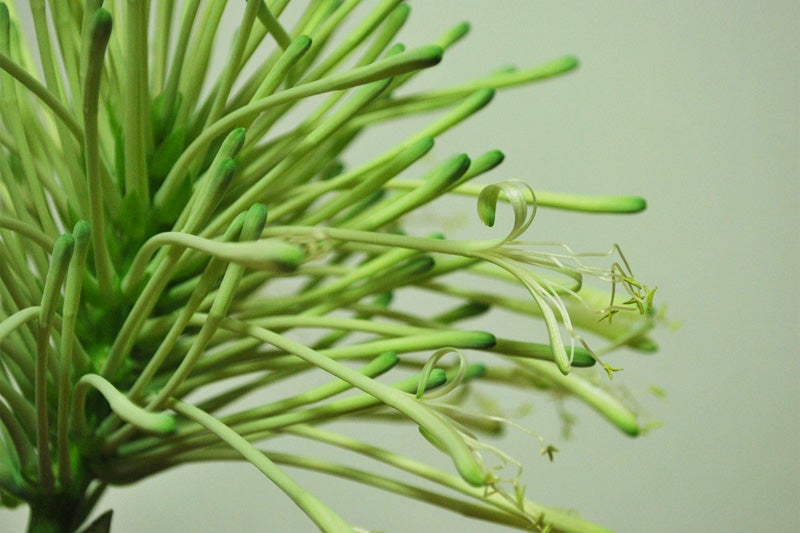Does your lawn have mysterious runways and chewed up plants? We may have the answer.
ListenMysterious runways in your lawn? Missing Spring bulbs, and plants chewed close to the ground? Mike McGrath, host of You Bet Your Garden, will discuss how to handle voracious VOLES. Plus: learn about grafted tomatoes with Chelsey Fields, vegetable product manager at Burpee Seed Company.
Questions of the Week:
“How do I control moles? My yard is tunneled to death! And what’s the difference between a mole and a vole?”
— Joe in Alexandria, Virginia
“Our neighborhood has been invaded by voles, which have destroyed my grass. What can I do?”
— Antoinette in Arlington, Virginia
“How can I rid my lawn and garden of voles? They’ve chewed the roots and stems of my shrubs and other plants and are destroying my well-tended lawn. I don’t want to use poison as I have a Labrador retriever. I’ve tried coyote urine and other repellents and even stuffing their tunnels with Juicy Fruit gum, but they’re still out there.”
— Jeannie in West Chester, Pennsylvania
How to get rid of voles »
Highlights from show for April 26, 2014:
Runaway sansevieria
Sandra, from Island of Culebra, near Puerto Rico and the US Virgin Islands has a sansevieria problem. In colder parts of the US sansevieria is known as a reliable houseplant, but in tropical climates it thrives outdoors. Sandra calls Mike for advice on controlling two large plants that are taking over her courtyard. Mike suggests two options: Sandra can cut down the plant and trim back new growth regularly to starve the roots or solarize the soil and bake the roots. Mike says: “I would imagine where you are in the tropics that you could solarize a level piece of ground in two months. What you would do is literally mow the plants down … and then you would soak the soil and you would pull clear plastic over the top of it during the hottest part of the year.”
Killing weeds without chemicals
Rob in Newark, Delaware is hoping Mike can settle a little difference in opinion between him and his wife. His wife keeps bringing home weed killer for grass in between the side walk cracks, but Rob really wants to keep things organic in his lawn. He never used the last batch she brought home, but can he dispose of the stuff properly without hurting the environment? Mike suggests simply bringing it back to the store, but notes that Rob brings up a great point about hazardous materials possibly hanging around in people’s basements or garages. Mike suggests contacting hazardous waste disposal in your township. “As for the weeds coming up in the cracks … Get her a flame weeder,” Mike suggests. “Just hold the flame over-top the weed and it dehydrates it.”
Reclaiming a compost pile
Eric from State College, Pennsylvania just bought a new house and found a compost pile with tons of different kinds of plants trying to decompose in it. The former owner threw all their plant “trash” in there, everything from hop vines and grape vines to raspberry canes. The good news is that Eric is growing the hop vines and grape vines on the property and he also has fruit trees to look forward to. Mike exclaims, “You’ve bought into a lot here!” Mike says the basic answer for this pile of debris, if Eric wants to build raised beds on it is to move the pile to any open spot on your property. You don’t want to bury it, that’s the reverse, buried material does not break down. “If you want that to become compost for you next year you probably have to get a chipper shredder – rent one for a weekend and run everything through it.”
Special guest: Chelsey Fields
Mike spoke with Chelsey Fields, Vegetable Product Manager at Burpee Seed Company about grafted tomatoes. Grafted varieties can provide much needed disease resistance to soil born wilts and other issues that arise when growing tomatoes. Grafting is an age-old practice that goes back hundreds of years and Chelsey explains the process, which involves grafting one root stock to a different top part of the plant. Listen and find out if grafted varieties are right for your garden. In the interest of full disclosure Burpee Seed Company supports You Bet Your Garden.
-

Mike McGrath in the studio with Chelsea Fields
Is it too late to plant spring bulbs?
Marilyn in West Alexandria, Ohio has some spring bulbs that she forgot to plant in the fall, so Mike has a way of creating the chilling that they need artificially. If Marilyn puts her bulbs in a fruit-free fridge, which she has done, she can take them out at the end of June, pot them up in nice loose potting soil and bring them out. Mike warns that bulbs do not like extreme heat so you have to be careful in July. “If it’s really hot and sunny outside I would treat them like orchids. I would have them on a table in a lit room or if they are going to get any kind of light have it be defused light” Mike suggests letting the greenery fade and by that time it will be close to planting them in the ground as usual.
How to handle soil contamination
Sue in Princeton, NJ has been growing in an organic garden for years and to her dismay her landscaper decided to sprinkle an herbicide around her garden. He thought he was doing her a favor, but he has caused her great distress. After calling Dow chemical, the maker of the herbicide, she found out that she needs to leave the garden alone for at least a whole season. Dow suggested removing 6 inches of soil and replacing it with new soil. Mike warns, “you expose yourself to massive amounts when you do something like that and then what are you gonna do with the soil?” Mike advises to just scrap the whole garden altogether for now and build true raised beds as far from the contaminated site as possible.
WHYY is your source for fact-based, in-depth journalism and information. As a nonprofit organization, we rely on financial support from readers like you. Please give today.






